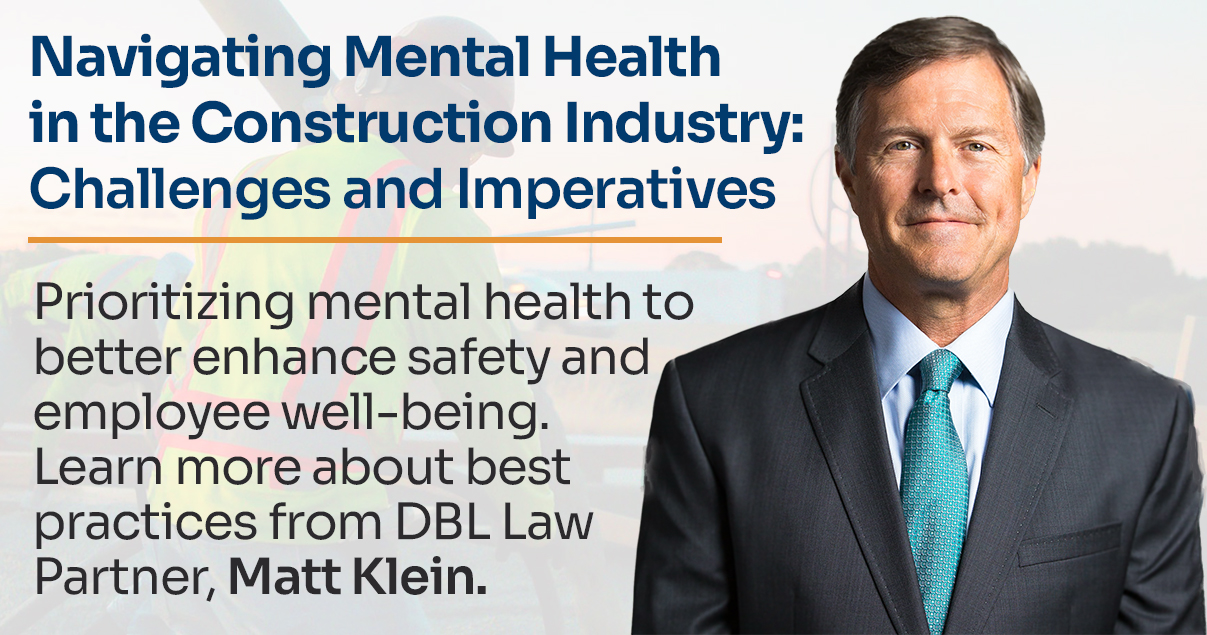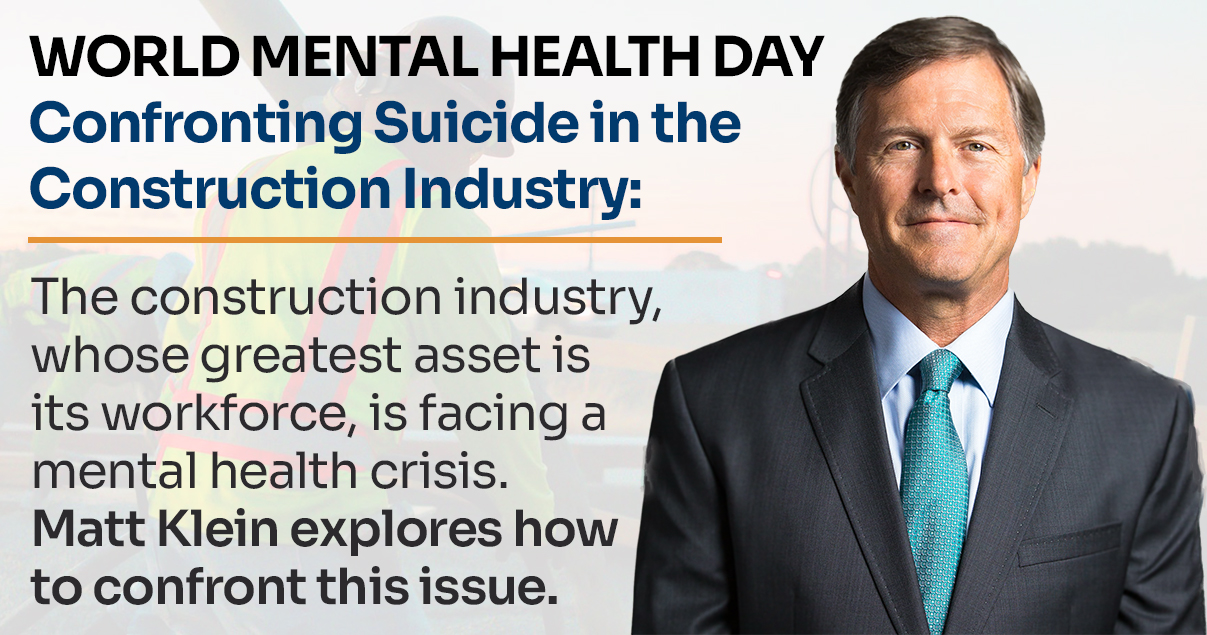In the construction industry, where accelerated timelines and fierce competition are the norm, the pressure to deliver projects on time and within budget is immense. Coupled with labor shortages and a fierce battle for talent, this high-stakes environment can take a significant toll on the mental well-being of workers. The increasing frequency of extreme weather events adds another layer of stress, further complicating project schedules and safety concerns.
Despite these challenges, the construction industry remains predominantly male, where traditional notions of toughness and resilience often hinder open discussions about mental health. Admitting to struggles or seeking help can be perceived as a sign of weakness, creating a culture of silence and apprehension. As we recognize the critical importance of mental health, it’s imperative to address these issues head-on, fostering a supportive and open environment for all workers.
Construction companies should be deeply concerned about their employees’ mental health for several reasons. These include ensuring workplace safety, enhancing productivity, improving employee retention, fulfilling legal and ethical responsibilities, and fostering a positive company culture.
Workplace Safety
The construction industry is inherently hazardous, with employees regularly exposed to physical dangers such as heavy machinery, heights, and hazardous materials. Mental health issues like stress, depression, and anxiety can significantly impair an individual’s cognitive functions, including concentration, decision-making, and reaction times. When construction workers are mentally distressed, their risk of making mistakes increases, which can lead to accidents and injuries on the job site. By prioritizing mental health, companies can enhance overall safety, reducing the incidence of workplace accidents and potentially saving lives.
Productivity Enhancement
Mental health is closely linked to productivity. Workers who are mentally healthy are more likely to be engaged, motivated, and efficient. On the contrary, those suffering from mental health issues often experience fatigue, lack of focus, and decreased motivation, leading to lower productivity levels. Addressing mental health concerns through support programs, counseling, and creating a supportive work environment can lead to a more productive workforce. This, in turn, can positively impact the company’s bottom line by improving project completion rates and reducing downtime.
Employee Retention
The construction industry faces high turnover rates, partly due to the demanding nature of the work. Mental health issues can exacerbate this problem, as employees struggling with mental distress are more likely to take extended leaves or resign altogether. By proactively addressing mental health, construction companies can improve job satisfaction and employee well-being, leading to higher retention rates. This stability not only saves costs associated with hiring and training new employees but also ensures that experienced and skilled workers remain with the company.
Legal and Ethical Responsibilities
Employers have both legal and ethical obligations to provide a safe and healthy work environment. In many jurisdictions, this includes addressing mental health as part of occupational health and safety regulations. Ignoring mental health can lead to legal repercussions, including fines and lawsuits. Ethically, companies have a responsibility to care for their employees’ well-being. Supporting mental health demonstrates a commitment to treating employees with respect and dignity, fostering trust and loyalty.
Positive Company Culture
A company’s culture significantly influences employee morale and overall business success. Prioritizing mental health contributes to a positive workplace culture where employees feel valued and supported. This culture of care can improve team cohesion, communication, and collaboration, as employees are more likely to engage positively with one another when they feel mentally well. Additionally, a company known for its commitment to mental health can attract top talent who seek supportive and progressive workplaces.
Practical Steps for Construction Companies
To address mental health effectively, construction companies can take several practical steps. Implementing Employee Assistance Programs (EAPs) provides workers with access to confidential counseling and support services. Regular mental health training and awareness programs can educate employees and managers about recognizing and addressing mental health issues. Creating a supportive environment where employees feel comfortable discussing their mental health without fear of stigma or retribution is crucial. Moreover, promoting work-life balance through flexible scheduling and adequate breaks can help alleviate work-related stress.
Conclusion
Construction companies have compelling reasons to be concerned about their employees’ mental health. Prioritizing mental well-being enhances workplace safety, boosts productivity, improves employee retention, fulfills legal and ethical responsibilities, and fosters a positive company culture. By taking proactive steps to address mental health, construction companies can create a safer, more productive, and supportive work environment, ultimately leading to greater business success and improved quality of life for their employees.
Next Steps
For more information on best practices in construction mental health, or to discuss any of your legal needs, contact Matt Klein of DBL Law’s Construction and Health Care Practice Groups. Matt and his team are dedicated to providing expert guidance and support to help you navigate the complexities of mental health in the workplace and ensure compliance with legal requirements. Reach out today to learn how DBL Law can assist you in fostering a healthier and more resilient workforce.





